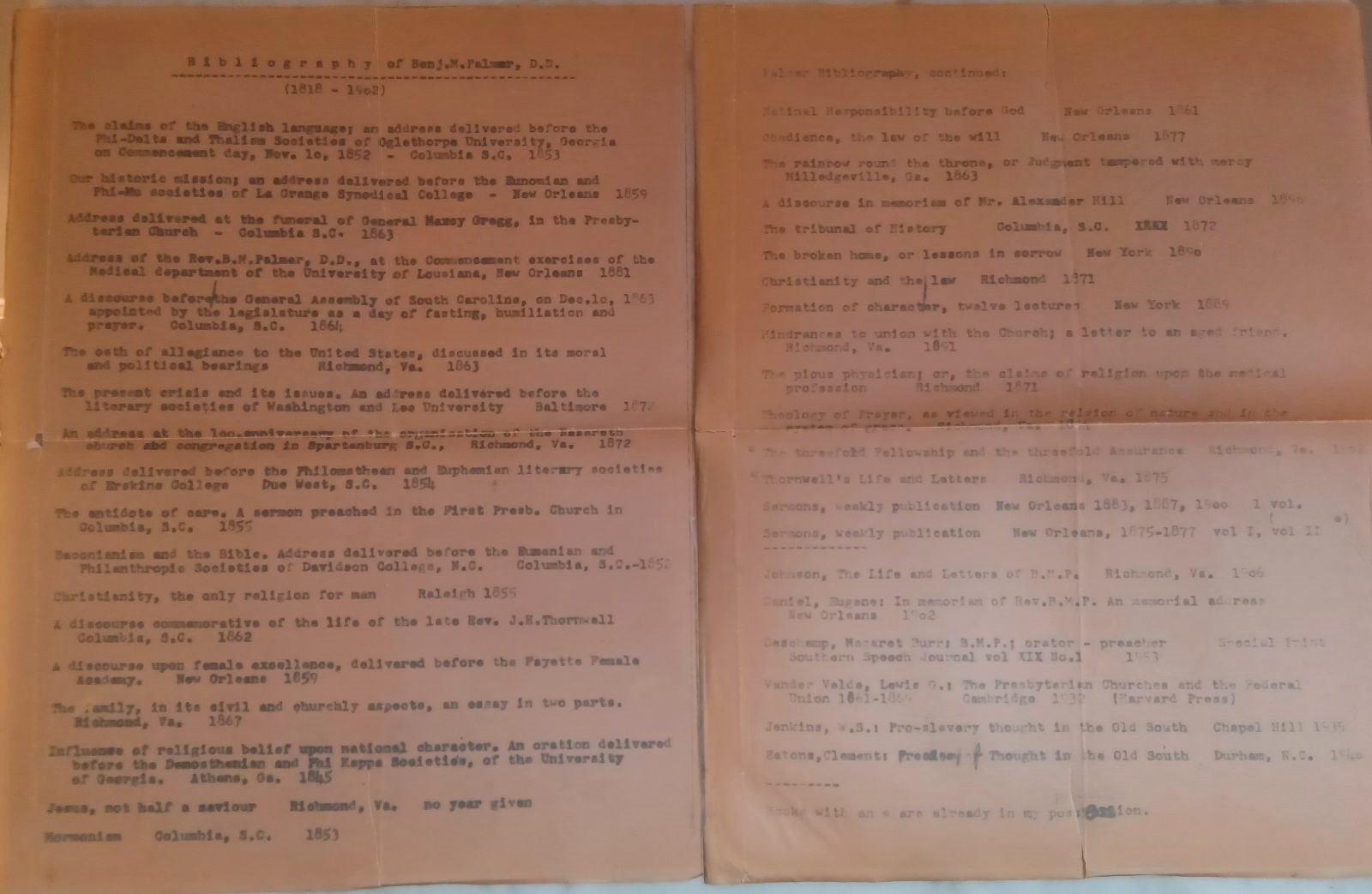Receive our blog posts in your email by filling out the form at the bottom of this page.
At the close of 2022, Log College Press is staying very active as we continue to expand the site and make accessible even more literature from early American Presbyterians.
Last month, in November 2022, we added 582 new works to the site. There are currently over 17,000 free works available at LCP. Today we are highlighting some of the new free PDFs available as found on our Recent Additions and Early Access pages, two features provided to members of the Dead Presbyterians Society.
Some highlights at the Early Access page:
Two works by Thomas Cleland, A Familiar Dialogue Between Calvinus and Arminius (1805, 1830); and The Socini-Arian Detected: A Series of Letters to Barton W. Stone, on Some Important Subjects of Theological Discussion, Referred to in His "Address" to the Christian Churches in Kentucky, Tennessee, and Ohio (1815);
Abraham Brooks Van Zandt, God's Voice to the Nation: A Sermon Occasioned by the Death of Zachary Taylor, President of the United States (1850);
Cornelius Van Til, The Defense of the Faith (1955); and Christianity and Barthianism (1962);
John Murray, The Reformed Faith and Modern Substitutes (1935-1936); and The Application of Redemption (1952-1954) [a series of many articles which served as the basis for his 1955 book Redemption Accomplished and Applied];
Geerhardus Vos, A Song of the Nativity (1924, 1972) [a Christmas poem]; and
early sermons by Francis James Grimké, Our Duty to the Poor — How We Observed It on Christmas (1881); Wendell Phillips: A Sermon Delivered Sunday, Feb. 24, 1884, at the Fifteenth Street Presbyterian Church, Washington, D.C. (1884); Our Future as a People (1890), each of which was contributed by a reader.
Some highlights at the Recent Addtiions page:
Dozens of articles by John Murray and Cornelius Van Til;
Many articles and sermons by Theodore Ledyard Cuyler and Thomas De Witt Talmage;
Lots of books by Mary Virginia “Marion Harland” Terhune;
The full run of Lyman Beecher, The Spirit of the Pilgrims (1828-1833); and the initial 1828 issues of Elias Boudinot, Cherokee Phoenix;
David McAllister, The National Reform Movement: Its History and Principles: A Manual of Christian Civil Government (1890);
Compilations, Testimony of the General Assembly of the Presbyterian Church in the United States of America on the Subject of Slavery (1858); Hymnal of the Presbyterian Church [PCUSA] (1867); and Centennial of Home Missions [PCUSA] (1902); and much, much more.
Also, be sure also to check out the quotes we have been adding at our blog for DPS members: Though Dead They Still Speak, including John Holmes Agnew: The Lord Loves the Gates of Zion; B.B. Warfield on Theological Study as a Religious Exercise and on What it Means to Glorify and Enjoy God; William H. Green on How the Child of God May Rightly Undergo Frowning Providences; John Murray: To the Calvinist Who Once Struggled With the Arminian Idea of Free Will; E.C. Wines: Christ is the Fountain of the Promises; James Gallaher on the Difference Between Calvinism and Fatalism; William S. Plumer's Suggested Guidelines for Making Family Worship More Profitable; Elizabeth Prentiss on Dying Grace; and T. De Witt Talmage: The Sabbath a Taste of Heaven.
We appreciate hearing from our readers if they find matters needing correction, or if they have questions about authors or works on the site, or if they have suggestions for additions to the site. Your feedback helps the experience of other readers as well.
Meanwhile, please feel free to browse the many resources available to our readers in print and in digital format. There is a lot to explore, and many Presbyterian voices from the past to hear. We look forward to seeing what the Lord has in store for Log College Press in 2023. Thank you, as always, for your interest and support, dear friends, and best wishes to you in the New Year!









